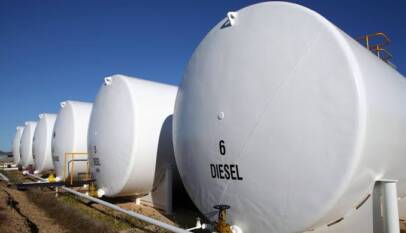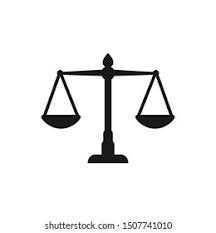Government we deserve: A mirror of our collective character

Pointblank with Chukwudi George Ozalla
When we speak of government, we often speak as though it were a distant force—an abstract institution detached from the moral fabric of society. We lament, we accuse, we point fingers, forgetting that the very individuals who sit in positions of power are products of the same society that condemns them.
They are our fathers, mothers, brothers, sisters, uncles, aunts, classmates, club members, friends, relatives, and associates. They did not fall from the sky. They rose from among us, molded by the same values, shaped by the same environment, and influenced by the same culture we all share or promote.
So, when we say “the government is corrupt,” we must first ask ourselves: what kind of citizens produced it? Are we not all in it somehow?
I recall vividly that the great American president Abraham Lincoln once said, “The philosophy of the schoolroom in one generation will be the philosophy of government in the next.” Lincoln, who led the United States during its darkest civil war, understood that governance is not born in the corridors of power, but in the classrooms, homes, and communities where citizens are nurtured. The values we uphold in our private lives—honesty, discipline, respect for others—eventually find their way into our public life.
If a person cheats at home, evades responsibility, steals, or abuses power in their little corner, what moral standing do they have to condemn the politician who does the same on a larger scale?
It is convenient to believe that government owes us everything—roads, jobs, electricity, education, security. But what do we owe the government in return? As citizens, we owe allegiance, civic responsibility, and a commitment to the common good.
The French political thinker Alexis de Tocqueville once penned, “In a democracy, the people get the government they deserve.” This statement, though often discomforting, carries a profound truth. When citizens neglect their duties—when we glorify shortcuts, tolerate injustice, or applaud ill-gotten wealth—we participate in the decay of our collective conscience. The rot at the top is merely a magnified reflection of decay at the base—a truth that cannot be disputed.
Consider this: when a public office holder diverts public funds, it is the same moral failure as when a citizen throws refuse into a drainage, sells fake drugs, or cheats another in business. Each act, no matter how small it may appear, chips away at the foundation of national integrity and cohesion. One good deed by every citizen, however minor, goes a long way in contributing to the total of a nation’s goodness.
A people that waits passively for their leaders to transform society without embodying virtue themselves will always remain trapped in disappointment. Governance is not a spectacle to be watched—it is a shared enterprise in which everyone, whether in the presidency, marketplace, or elsewhere, plays a part.
In Japan, an incident once revealed how deeply civic responsibility can shape a nation. When a toll gate malfunctioned for a few seconds, thousands of motorists drove through freely.
But when the system was restored, over 24,000 people voluntarily returned to pay their tolls. No policeman pursued them, no one reminded them, yet they did the right thing. They were neither Christian nor Muslim in their motivation.
That single event revealed the moral texture of a people—a society whose sense of right and wrong runs deeper than fear of punishment. It spoke of a nation that had built conscience into its culture.
If such civic virtue can define a people, imagine what Nigeria—or any society—could become if its citizens practiced honesty in daily life as passionately as they demand accountability from leaders.
We are quick to curse politicians and those in power who steal billions and trillions, yet some of us would cheat with millions—or even thousands or pennies—if given the chance. The truth is that power does not corrupt automatically; it reveals the true character of those who hold it.
When ordinary citizens who once criticized the government enter positions of authority, many soon compromise their principles, adapting to the system’s corrupt norms. This is not because politics transforms angels into devils, but because it exposes what has long lain hidden beneath the surface.
Our society, therefore, will not be changed by speeches or slogans, but by the quiet consistency of millions of individuals doing what is right. The road to a just and prosperous nation begins not at the top but at the bottom—in homes, schools, churches, mosques, and marketplaces where values are formed. The government we desire is only as good as the citizens who create it.
When next we lament the failures of leadership, let us remember that leadership is merely a reflection of followership. Let us begin to ask not only what our country owes us, but what we owe our country. The truest litmus test of patriotism is not in singing the national anthem, but in living by its spirit—faithful, loyal, and honest.
Revered Mahatma Gandhi aptly said, “You must be the change you wish to see in the world.” Gandhi, who led India’s moral and political awakening, did not wait for government action before he began to live out the change he preached.
His life remains a quiet example of what conviction can do—proof that great nations are not built by rulers alone, but by the conscience of their people. When citizens act with integrity, leaders are compelled to follow suit. When each person becomes a keeper of moral order, governance naturally begins to reflect that virtue.
A better society, therefore, begins not merely with cries for better leaders, but with the steadfast resolve of better citizens.
Publisher & Editor-in-Chief, NEWSCOUNT.
FENRAD urges dialogue on 15% petroleum import duty amid economic woes
Foundation for Environmental Rights, Advocacy and Development (FENRAD) has expressed deep …






